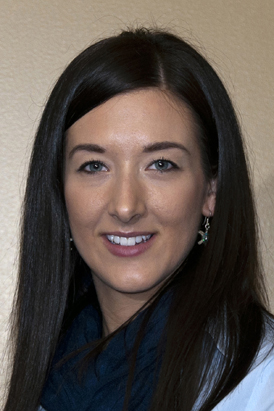Fishing has always been a favorite pastime of Alaskans, and now, thanks to a former Kenai Peninsula resident, it can be done more safely.
Alexandra West, a 2007 Skyview High School graduate who is now an engineer-in-training for PND Engineers Inc. in Anchorage, has recently been awarded a patent for a device that prevents bears from being attracted to fishing sites, according to a press release supplied by PND.
The device, which was successfully patented this past September, helps anglers dispose of fish carcasses in a safe manner while fishing in Alaska’s rivers. Bears are often attracted to the scent of fish carcasses, a potentially dangerous situation for people if they happen to be nearby.
According to its website, the Alaska Department of Fish and Game recommends the Stop, Chop and Throw method, which involves anglers cutting up fish remains and throwing them into fast moving current, or simply removing the whole fish from the site.
West designed a hydro-powered grinder that floats in the water and is connected to the riverbank. Anglers would push the fish remains down a slide connecting the fillet table to the grinder. The device would not only reduce human-bear interactions, according to West, but also resupply the river with marine nutrients.
“People could fillet their catch and toss the remainder of the fish down the slide to be ground up into tiny pieces and discharged back into the stream,” West said in the press release. “This grinder system could eventually benefit the fishing community and waterways in Alaska and other areas with abundant fisheries by removing unnecessary attractants to bears and keeping the important marine nutrients from our salmon in the ecosystem.”
West said her upbringing on the Kenai Peninsula inspired her to help the fishing community.
“As I grew up, I became aware of some of the environmental issues U.S. Fish & Wildlife Service and other agencies were working on associated with fish waste disposal along the Russian River at Cooper Landing,” said West in the press release.
West started her project in 2011 while attending the University of Alaska Anchorage.
With the help of UAA’s Dr. Helena Wisniewski, the vice provost for research and graduate studies, West filed for her patent in June 2013. UAA also assisted her by paying for the application process and other related fees involved with the patent.
Later this month, West, who currently is completing her master’s thesis project, will become the first student inducted into the UAA Patent Wall of Fame.
“I am very proud of Ms. West,” said Wisniewski in the press release. “She exemplifies the ideal student who applied her talent beyond her classroom studies. She observed a need and invented a device that will benefit fishermen and the environment, with the potential to contribute to the economy. I look forward to inducting her as the first student into the UAA Patent Wall of Fame.”
News of West’s achievement was met with excitement from the Russian River Interagency Coordination Group, which has long tried to educate people about proper fish-waste disposal.
“It’s exciting news,” said Russian River Interagency Management Coordinator Bobbie Jo Skibo, who has been monitoring West’s progress for the past few years. “We would like to congratulate Alex and UAA for this achievement. It’s exciting to see academia and entrepreneurs stepping up and coming together with ideas that will help reduce the challenging issues that we’re faced with.”
Skibo said that conflicts between humans and bears always remain a concern, despite major bear attacks being rare.
“We take the issue of human-created fish waste seriously,” Skibo said.
Because UAA helped pay for the patent process, West said she isn’t sure if her design will be sold in the future.
While the future plans for her design are uncertain, West is positive she is where she wants to be and she’s doing what she wants to do.
“I like Alaska, so I’m good here for now,” West said. “Growing up, I really liked math, science and art. Engineering allowed me to combine all of them into something I love.”
Ian Foley is a reporter for the Peninsula Clarion.


